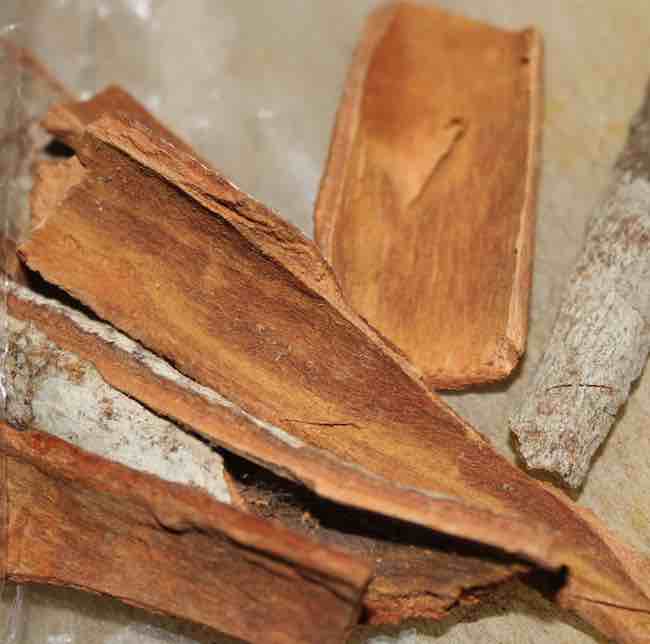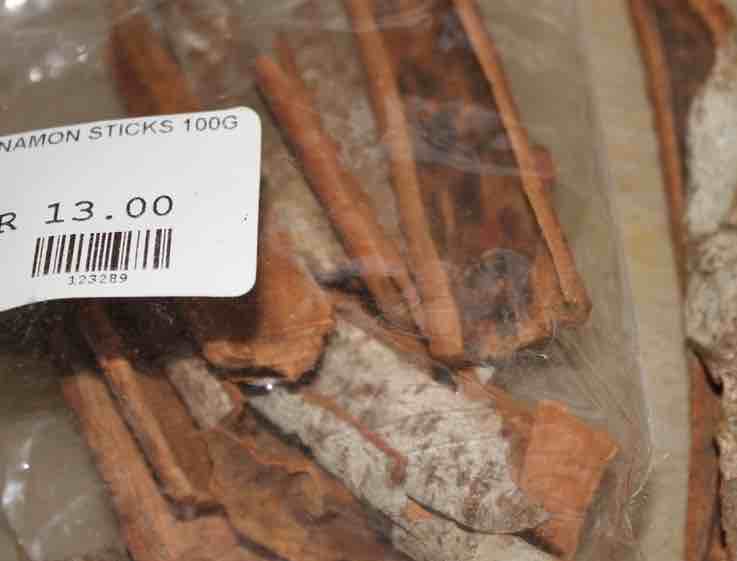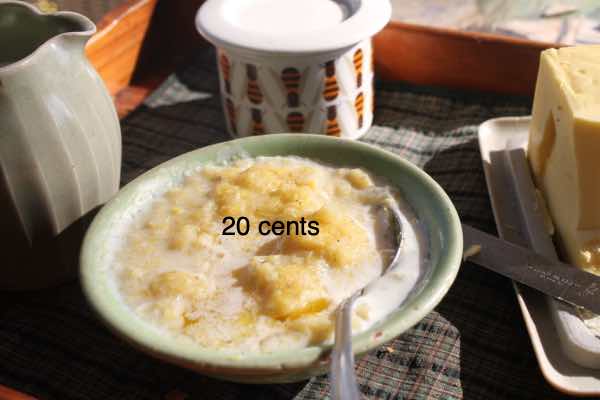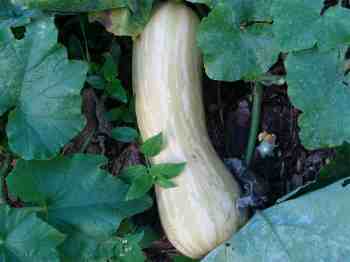- Homepage
- Herbs Spices
- Cinnamon and Diabetes
Cinnamon and diabetes
Cinnamon and diabetes have a common interest; the insulin-sensitivity of our cells is increased by the spice, enhancing the absorption of raised glucose from the blood.
Diabetes is a complex disease with some researchers saying there are not three but over a hundred different kinds. All of the most common type-2 varieties have one thing in common; the receptors on our cells have poor sensitivity to insulin. They aren't able to access the high glucose in the blood stream.

The net result is that the liver has to suck up all that glucose; it is then trapped as fat and makes us vulnerable to a serious disease called non-alcoholic steatohepatitis. It is often fatal.
Interesting research suggest that cinnamon gives amazing protection; along with the B-vitamin called choline.
Fast facts on diabetes
Fast facts on diabetes
- 37.3 million Americans have frank diabetes.
- 96 million adult Americans have prediabetes.
- In total 39% of the population is seriously afflicted by chronically raised blood glucose.
- Over 65 years it's far worse. 49% have prediabetes[4].
Cinnamon and diabetes
This is where cinnamon has a role to play; along with turmeric too it improves the sensitivity of the cells to the influence of insulin.
Don't think that by taking these spices you can cure your diabetes; they
will help in the management and give you better blood glucose control. But in order to really gain the ascendancy over this now very common
disease you have to look at the whole of your lifestyle.
That means inter alia exercising after every starchy meal and eating much less refined carbohydrate; preferably virtually none. Food as medicine looks at how scientists have shown you can put type-2 diabetes completely into remission without the use of drugs.
Patients who refuse to take diabetes seriously are highly likely first to have a temporary ischemic attack; one in five will then have a full-blown stroke within three months.
Then comes kidney disease, blindness and loss of blood circulation to the lower limb; you don't mess with diabetes. It is a killer.
Zanzibar and the Moluccas
Zanzibar is known as East Africa's spice island, though normally the term is given to the Moluccas in Indonesia.
These islands are well known for their cinnamon, nutmeg and vanilla. Once you have tasted the unprocessed condiment you will never go back to the artificial flavouring.
Cinnamon comes from the bark of a tree that grows only in tropical areas. The trick for diabetics is to include small amounts of the spice daily in their cooking. It gives our food an exotic flavour while also improving our well-being.
Stable blood glucose is probably the most important fundamental part of our well-being; if it is too low you go into a coma and if high it causes serious inflammation of the blood cells and the inner linings of our capillaries. It will affect every single organ in the body.
Researchers have shown that even a moderate reduction of HbA1c with medication added 3.4 years of life expectancy[3]. However intensive drug treatment leads to hypoglycemic episodes and weight gain of over 10kg.
Lowering of blood glucose by dietary means may be more attractive to those looking to natural medicine for relief; it may be safer too.
You can pay a lot of money for finely-ground cinnamon but by so doing, it is exposed to air and begins to oxidise. If you buy a large bottle, immediately decant the majority into an airtight bag and pop it, properly labelled into the freezer.
In order to squeeze more money out of your pocket food manufacturers will make it attractive by curling it into pretty rolls or grinding it very finely. This does nothing for the cinnamon and diabetes; in fact if anything it detracts from it. And you can be sure the price rises many times. So we use the simple unprocessed bark which is dirt cheap.
Notice the price; R13 for 100g is less than a dollar. Half a stick goes into every large pot of butternut soup and much of our cooking.
Small bits go into a muslin bag so they can be easily removed after boiling.
Unprocessed spices
As a general rule, unprocessed spices like all other foods are better for us.

Obesity and cinnamon
You will notice that many weight-loss programmes advocate the use of cinnamon. Because it enhances the effect of insulin, the fat hormone, in some small way it will help. Obesity and diabetes are common bedfellows as I am sure you know.
What is more, the pandemic has hit diabetics particularly badly; with at least ten percent of the people in Western nations having significantly raised blood glucose, the number dying is scary.
40 percent of young Americans suffer from insulin resistance. The subject of cinnamon and diabetes should capture their attention; but it doesn't.
Most are either diabetic or have high blood pressure, both of which are features of raised serum glucose. Small doses of cinnamon every single day in your cooking will improve the chances of not succumbing to this virus; or the next one which is waiting just around the corner.
"People with diabetes who take nonsteroidal anti-inflammatory drugs even on a short term basis may have about a 50% greater risk of developing heart failure."
- European Society of Cardiology
We do not believe in diets; cinnamon and diabetes might make a marginal difference but no more.
In South Africa we have the largest Indian community outside of the subcontinent; they were brought here as indentured labourers to cut sugarcane. They eat prodigious amounts of cinnamon and turmeric yet have an extremely high prevalence of the disease. It is all about the refined carbs.
For Indians it is all about white rice. For Africans the nightmare is highly-refined cornmeal; and for Europeans the elephant in the shop is cake flour. Add sugar to the equation and no amount of cinnamon will keep you from obesity and diabetes. The liver is being flooded with glucose.
 Try adding a small stick of cinnamon to your grits
Try adding a small stick of cinnamon to your gritsDo not get suckered into signing up and paying out good money for one of the low carb programs; just seriously reduce the refined stuff, always take a walk if you have indulged and you will naturally, slowly lose weight.
There is masses of research showing that whole grains and legumes which have large amounts of carbohydrate are good for us; shun them at your peril. It's the chocolate cake that is the devil; all-purpose flour plus sugar.
Many doctors have accepted that intensive lifestyle management for diabetes has little value; we simple are unable to conform to the demands. One alternative is weight-loss drugs with the attendant 36 times greater chance of dying from pancreatic cancer. Could you severely cut the refined carbs from your diet and start walking more? Do it for ever, or not at all.
"Pancreatic cancer is projected to become the No. 2 cause of cancer-related death in the United States, surpassing malignant colorectal and breast tumours."
- Cedars Sinai
Cinnamon and diabetes research
This is not all just a pipe-dream; it is strongly backed up by cinnamon and diabetes research. By using food as medicine most type-2 diabetics get put themselves completely into remission.
Publishing in the journal Diabetes Care researchers set out how many botanical products such as onions, freshly ground flax seed and a number of vitamins improve glucose levels, lipid metabolism and capillary function; chromium and zinc too. They set out to prove that cinnamon too has a role to play in type-2 diabetes.
Giving a group of sixty diabetics different amounts of cinnamon and comparing half of them with placebo tablets, they found profound effects on fasting blood glucose, triglycerides and cholesterol[1]. Really interesting is that these sustained benefits continued for three weeks after they stopped taking the spice.
The group taking the largest amount, 3 grams per day, about one teaspoon, continued to improve for a period even after they stopped taking the spice.
In other research it was found that cinnamon reduced the rate at which food is emptied from the stomach, significantly ameliorating the raised blood glucose that is the main feature of diabetes after a starchy meal.
Loss of energy
The researchers above declared that the raised serum glucose also decreases the synthesis of glycogen in muscles explaining why diabetics have loss of energy, get-up and go. Dephosphorylation of a muscle receptor downgrades its ability to respond to insulin.
Extracts of cinnamon were shown to inhibit this dephosphorylation increasing the receptors' sensitivity to insulin.
They continue to emphasise the other benefits of cinnamon including better lipid metabolism and as a potent antioxidant.
Food
You add cinnamon sticks to your favourite dishes. It will give them a sweet and pungent flavour that you will love. We add it to all our curry dishes and in particular to the easy butternut soup that we make all year round; they grow prolifically in our garden.
Pumpkin for diabetes is an ancient natural therapy for the disease; add cinnamon and you have a winner.
Cinnamon and diabetes is central to our thinking; as is low refined starch and fad-free menu planning.

From the horse's mouth
On a personal note
I too am prediabetic but by taking small amounts of spices like cinnamon and turmeric daily, avoiding refined carbohydrate and getting plenty of exercise whilst gardening, my blood glucose is very well controlled. But if I break the rules, it shoots up. Neither the good wife nor I, both in our eighth decade, take any medication whatsoever.
We follow the dictum of Hippocrates, father of every wellness programme of value, who is greatly hallowed but totally ignored; let your food be your medicine. Enjoy more cinnamon in your cooking if you have diabetes.
Why would one not want to start adding a spice that enhances the flavour of one's food, is inexpensive and has so many profound benefits?
An infusion as a drink
Adding a chunk of the cinnamon bark, or a teaspoon of the spice to a mug of boiling water, allowing it to steep and then a little raw honey makes a wonderful, heartening drink; and perhaps a few drops of fresh lime juice
Another is apple cider which is so easy to make in your kitchen if you have access to cheap fruit; of course, add a stick of cinnamon and some cloves too. Those who are prediabetic need not be anxious; the fruit sugars are turned into alcohol.
Mind you alcohol is turned into triglycerides.
In short cinnamon and diabetes enables you to cheat just a little. The golden rule is take a short walk after every starchy meal.
Concerns from Europe
Coumarin is one of the important phytochemicals found in cinnamon. It has a natural blood-thinning effect; it reduces the likelihood of clots that cause heart attacks and strokes.
There have been concerns about large amounts of coumarin causing liver damage. Researchers publishing in Frontiers of Pharmacology report however that "no cases of abnormal hepatic function caused by cinnamon bark were observed[2]."
The Danish government has limited the use of cinnamon to about 1g (1/3 tsp) per day for a 70kg person. We are in any case not recommending more than that.
Small amounts of herbs and spices in your food, not from tablets is what we recommend; you have to work very hard then to overdose. Even Asians who eat 10 times more cinnamon than the average European are having only one fifth of the EU limit. To us it looks like a storm in teacup.
Enjoy the rich taste of cinnamon regularly in your cooking and benefit from its very important role in lowering blood glucose, preventing clot formation and helping to reduce inflammation in the body.
It needs to be emphasised though, the solution to diabetes is strict control of refined carbohydrates; cinnamon is only a helper.
Choline food sources
We mentioned above that one of the B-vitamins gives amazing protection against the fatty liver that often accompanies type 2 diabetes. Read here about choline food sources.
- Cinnamon Improves Glucose and Lipids of People With Type 2 Diabetes
- The Relation between Hepatotoxicity and the Total Coumarin Intake from Traditional Japanese Medicines Containing Cinnamon Bark
- Potential Gains in Life Expectancy Associated With Achieving Treatment Goals in US Adults With Type 2 Diabetes
- National Diabetes Statistics Report USA
When browsing use right click and "Open Link in New Tab" or you may get a bad gateway signal.
The material expressed on this page is gleaned from the nutritional and environmental literature; it is clearly referenced. A plain distinction is made between the author's opinion and that which is scientifically proven. When in doubt consult your health professional.
To suggest a correction or clarification, write to Dr Bernard Preston here. Contact.
Newsletter
Our newsletter is entitled "create a cyan zone" at your home, preserving both yourself and Mother Earth for future generations; and the family too, of course. We promise not to spam you with daily emails promoting various products. You may get an occasional nudge to buy one of my books.
Here are the back issues.
- Lifestyle and ideal body weight
- What are ultra-processed foods?
- Investing in long-term health
- Diseases from plastic exposure
- Intensive lifestyle management for obesity has limited value
- A world largely devoid of Parkinson's Disease
- The impact of friendly bacteria in the tum on the prevention of cancer
- There's a hole in the bucket
- Everyone is talking about weight loss drugs
- Pull the sweet tooth
- If you suffer from heartburn plant a susu
- Refined maize meal and stunting
- Should agriculture and industry get priority for water and electricity?
- Nature is calling
- Mill your own flour
- Bake your own sourdough bread
- Microplastics from our water
- Alternative types of water storage
- Wear your clothes out
- Comfort foods
- Create a bee-friendly environment
- Go to bed slightly hungry
- Keep bees
- Blue zone folk are religious
- Reduce plastic waste
- Family is important
- What can go in compost?
- Grow broad beans for longevity
- Harvest and store sunshine
- Blue zone exercise
- Harvest and store your rainwater
- Create a cyan zone at your home
Did you find this page interesting? How about forwarding it to a friendly book or food junkie? Better still, a social media tick would help.
- Homepage
- Herbs Spices
- Cinnamon and Diabetes
Address:
56 Groenekloof Rd,
Hilton, KZN
South Africa
Website:
https://www.bernard-preston.com